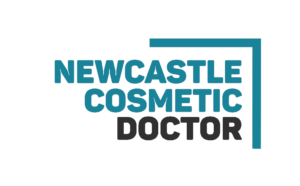Applies to: All Newcastle Cosmetic Doctor (NCD) staff and digital communication partners
1. Purpose
This SOP provides Newcastle Cosmetic Doctor (NCD) with a structured framework to manage digital crises, protect the clinic’s reputation, and ensure ethical, transparent responses to misinformation, negative publicity, or online incidents. It prioritises patient safety, accuracy, and compliance with Australian and international digital communication standards. 1 2 3 4 5 6 7 8 9 10 11 12
2. Scope & Applicability
Applies to all NCD digital platforms and communication channels, including social media, websites, Google Business, and third-party directories. It covers responses to public complaints, viral misinformation, false allegations, regulatory inquiries, and cybersecurity-related events. 1 2 3 4 5 6 7 8 9 10 11 12
3. Regulatory Framework
NCD operates under AHPRA and TGA advertising standards, ACCC consumer protection laws, OAIC data privacy regulations, and NSW Health public communication frameworks. Global references such as WHO crisis communication and FTC/ASA reputation management guidelines support international alignment. 1 2 3 4 5 6 7 8 9 10 11 12
4. Definitions
“Digital crisis” refers to any online event that may harm patient trust, safety, or the clinic’s reputation. “Reputation management” involves coordinated monitoring, response, and recovery measures that maintain factual accuracy and ethical conduct in public communications. 1 2 3 4 5 6 7 8 9 10 11 12
5. Crisis Identification & Classification
Crisis events are classified by severity—from low-risk misinformation requiring factual clarification to high-risk incidents involving potential regulatory or privacy breaches. Early detection is supported by social listening tools and daily content monitoring by trained staff. 1 2 3 4 5 6 7 8 9 10 11 12
6. Response Coordination & Leadership
A Crisis Response Team, led by the Responsible Medical Practitioner, coordinates all responses. The team includes communications, clinical governance, and legal representatives to ensure messaging aligns with clinical ethics, advertising law, and patient confidentiality. 1 2 3 4 5 6 7 8 9 10 11 12
7. Public Communication Principles
All public responses must be truthful, concise, and empathetic. NCD acknowledges issues factually, clarifies misinformation without hostility, and avoids speculative or defensive statements. No patient information is disclosed publicly. 1 2 3 4 5 6 7 8 9 10 11 12
8. Managing Negative Reviews & Allegations
Reviews are addressed respectfully within ACCC and AHPRA guidelines. Clinicians thank reviewers for feedback but do not confirm patient relationships or disclose treatment details. Unfounded allegations are escalated to the compliance team for factual clarification or reporting to the platform. 1 2 3 4 5 6 7 8 9 10 11 12
9. Handling Misinformation & Viral Content
When misinformation spreads, NCD issues a factual correction via verified channels (official website or social media). False health claims are countered with evidence-based resources and regulatory citations, referencing AHPRA, TGA, or WHO guidelines for credibility. 1 2 3 4 5 6 7 8 9 10 11 12
10. Privacy, Data Protection & Confidentiality
Any incident involving unauthorised disclosure of personal data triggers immediate containment, internal notification, and OAIC breach reporting if applicable. NCD ensures that all digital interactions comply with Australian Privacy Principles and role-based access protocols. 1 2 3 4 5 6 7 8 9 10 11 12
11. Media & External Stakeholder Engagement
All contact with journalists, influencers, or regulatory agencies during a crisis must be coordinated by the Crisis Response Team. Responses must be reviewed by legal counsel or the Responsible Medical Practitioner to ensure accuracy, consistency, and alignment with NCD’s communication values. 1 2 3 4 5 6 7 8 9 10 11 12
12. AI & Automated Crisis Response
Automated moderation or AI-generated alerts assist in early detection of harmful content, but human oversight remains mandatory. AI tools are never used for direct patient communication or public statements. All AI outputs must be verified and approved by the communications team. 1 2 3 4 5 6 7 8 9 10 11 12
13. Escalation Pathway & Reporting
Incidents are logged in the Crisis Response Register, detailing source, type, response, and resolution outcome. High-risk events are reported to regulatory bodies (AHPRA, TGA, OAIC) when required. Lessons learned are reviewed at governance meetings to improve readiness. 1 2 3 4 5 6 7 8 9 10 11 12
14. Recovery, Review & Learning
After a crisis, NCD conducts a debrief to evaluate response speed, tone, and compliance. Corrective actions may include policy updates, staff retraining, or enhanced monitoring systems. Continuous improvement ensures sustained reputation resilience and patient trust. 1 2 3 4 5 6 7 8 9 10 11 12
15. Training & Continuous Improvement
All staff receive annual training in crisis communication, privacy, and regulatory compliance. Scenario-based exercises simulate digital reputation risks to strengthen preparedness and ensure consistent, lawful, and compassionate responses. 1 2 3 4 5 6 7 8 9 10 11 12
Sources
- AHPRA, Advertising a regulated health service – Guidelines (2024)., viewed 24 October 2025, https://www.ahpra.gov.au/Resources/Advertising-hub/Advertising-guidelines-and-other-guidance/Advertising-guidelines.aspx ↩
- Medical Board of Australia, Guidelines for cosmetic medical and surgical procedures (2025)., viewed 24 October 2025, https://www.medicalboard.gov.au/ ↩
- ACCC, Managing online reviews and complaints under Australian Consumer Law., viewed 24 October 2025, https://www.accc.gov.au/ ↩
- OAIC, Australian Privacy Principles and data breach notification guidelines., viewed 24 October 2025, https://www.oaic.gov.au/privacy/ ↩
- ACSQHC, NSQHS Standard 1: Clinical Governance and communication during incidents., viewed 24 October 2025, https://www.safetyandquality.gov.au/ ↩
- NSW Health, Crisis communication and public information policy., viewed 24 October 2025, https://www.health.nsw.gov.au/ ↩
- RACGP, Digital professionalism and crisis management in healthcare., viewed 24 October 2025, https://www.racgp.org.au/ ↩
- TGA, Advertising Code and social media compliance in healthcare marketing., viewed 24 October 2025, https://www.tga.gov.au/ ↩
- WHO, Communicating risk in public health emergencies – Principles and practice., viewed 24 October 2025, https://www.who.int/publications ↩
- FTC, Handling false or defamatory online statements – Compliance Guide., viewed 24 October 2025, https://www.ftc.gov/ ↩
- NHMRC, Digital ethics and responsible online conduct (2024)., viewed 24 October 2025, https://www.nhmrc.gov.au/ ↩
- UK ASA, Crisis management and online reputation principles for healthcare entities., viewed 24 October 2025, https://www.asa.org.uk/ ↩


